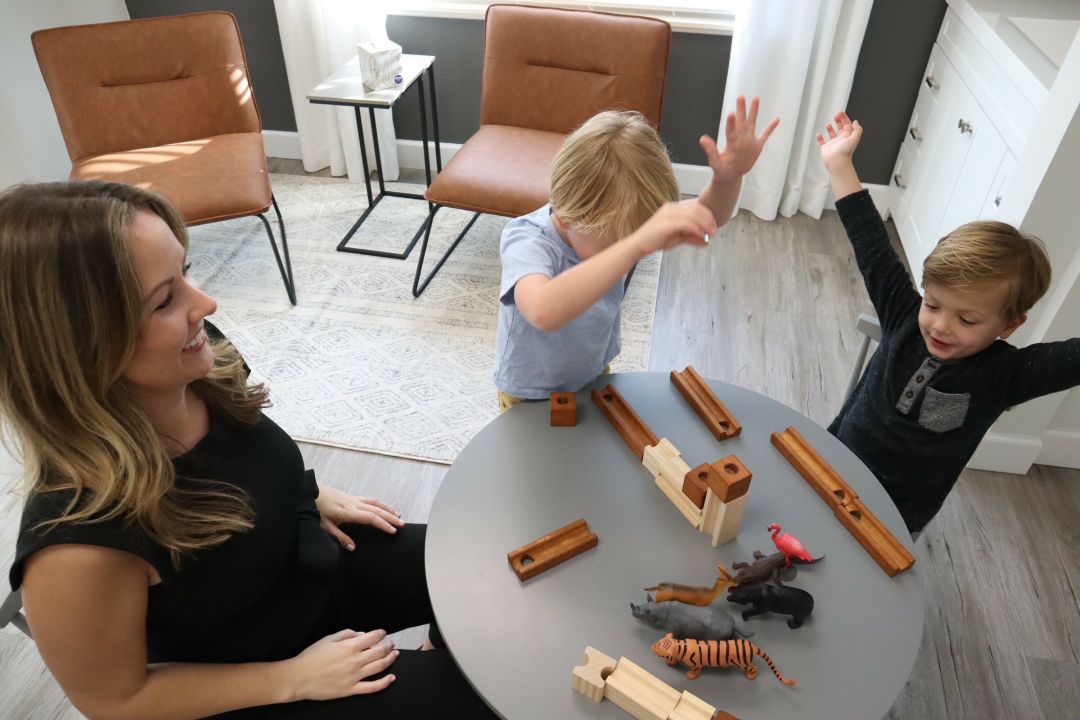8 Signs Your Child May Need Behavioral Therapy

Image: Courtesy the Blend Institute
As parents, we will undoubtedly face days that are harder than others, making us question our abilities and experience self-doubt. We will worry about whether each tiny decision is going to help or harm our children later down the road. Throughout the pandemic, mental health has come to the forefront as a “second pandemic.” Fears and anxieties are abounding—not just in us, but in our children, too.
As a parent of twin boys, with 15 years of behavioral therapy background, Niki Theiler, LHMC, can assure you there is no single “right” way to parent. Parenting is an ongoing learning experience that requires strategic thinking and adaptation to your child’s needs. What many parents struggle with is determining whether the behavior their child is exhibiting is normal/developmentally appropriate, or if there is something more going on. If your child’s behavior consistently disrupts daily routines, causes difficulty participating in school, and/or seems to impact their ability to interact with others for longer than a few weeks, then it may be time to talk with someone.
Niki suggests that if parents are noticing one or more of the following behaviors, they consider getting an evaluation. It might benefit their child to learn better ways to communicate and handle their emotions, making them more successful at home and at school.
- Trouble falling asleep or sleep regressions
- Change in appetite
- Regressions in toileting, bed wetting
- Increase in noncompliance
- Longer, more frequent, more intense tantrums
- Irritability, or lower frustration tolerance
- Difficulty concentrating
- Complaints of stomachaches or headaches

Image: Courtesy the Blend Institute
If you decide to pursue mental health treatment for your child, it is beneficial to find a provider who has experience with or specializes in children. A therapist who is trained to work with children will be able to use language and child-friendly approaches that will help them process their feelings. For therapy to be most effective, your child needs to trust and form a connection with their therapist. Oftentimes, it can be difficult for kids to voice what they are feeling and be vulnerable, especially if they don’t trust the person they are talking to.
My four-year-old is verbally advanced and high functioning—but also seems to possess high emotional Intelligence. He makes friends easily and is, generally, a happy-go-lucky kid. I was quite surprised when he started to express anxiety and fear in our daily conversations. Niki was able to quickly connect with my child and give him hands-on techniques to help him process his fears and identify “false alarms.” He is always happy to see Niki, and their “playtime” has helped him navigate through his anxiety and reminded him of his ability to calm himself through self-soothing techniques. Our interaction with Niki has truly been a benefit to our family. —Blend Institute, Behavioral Therapy (age 4 patient) parent testimonial
During your first appointment, expect your therapist to spend time getting to know you and your child. Understanding the family and the dynamic at hand is vital to curating an effective treatment plan. I will ask many questions about family history/upbringing and development/behavioral concerns.
Seeking out treatment can be scary for us as parents and for our kids. Having a warm conversation with your child prior to the appointment, letting them know what to expect, will help. Tell them they will be able to play and talk with someone who is really good at understanding people’s feelings. Once you are there, the therapist will help guide you in how to further discuss treatments and implement helpful strategies at home.
If you or someone you know is struggling with a child, please reach out to us at the Blend Institute. It’s better to seek help than wait and let things “figure themselves out.”



